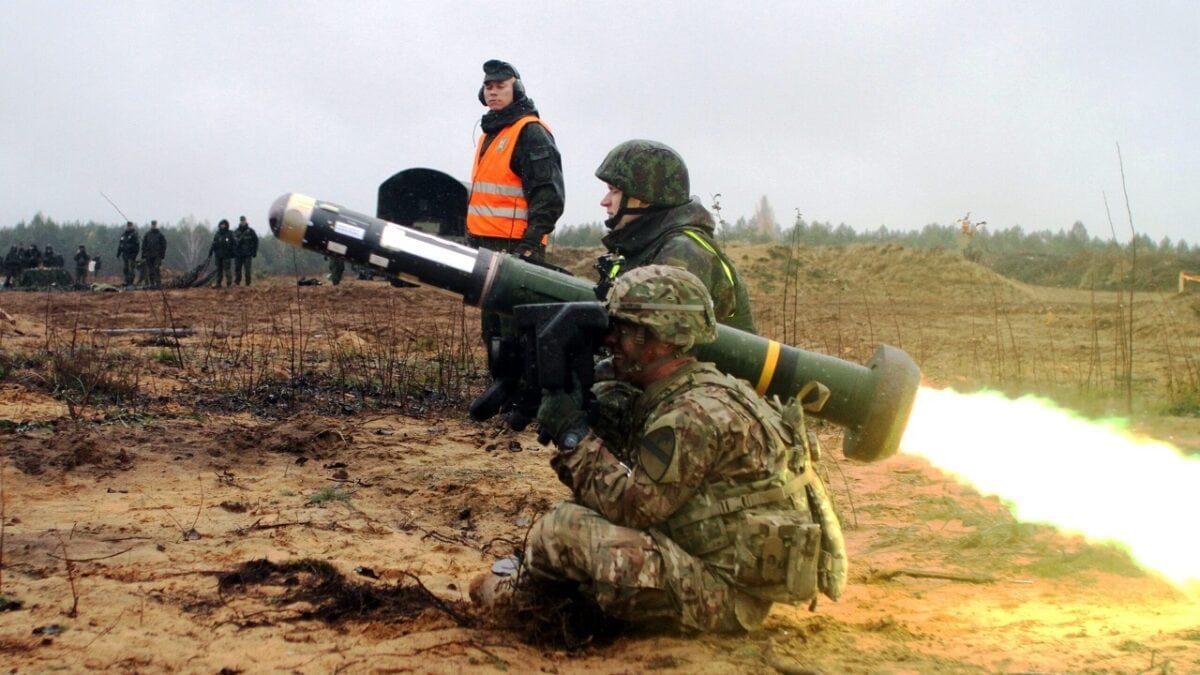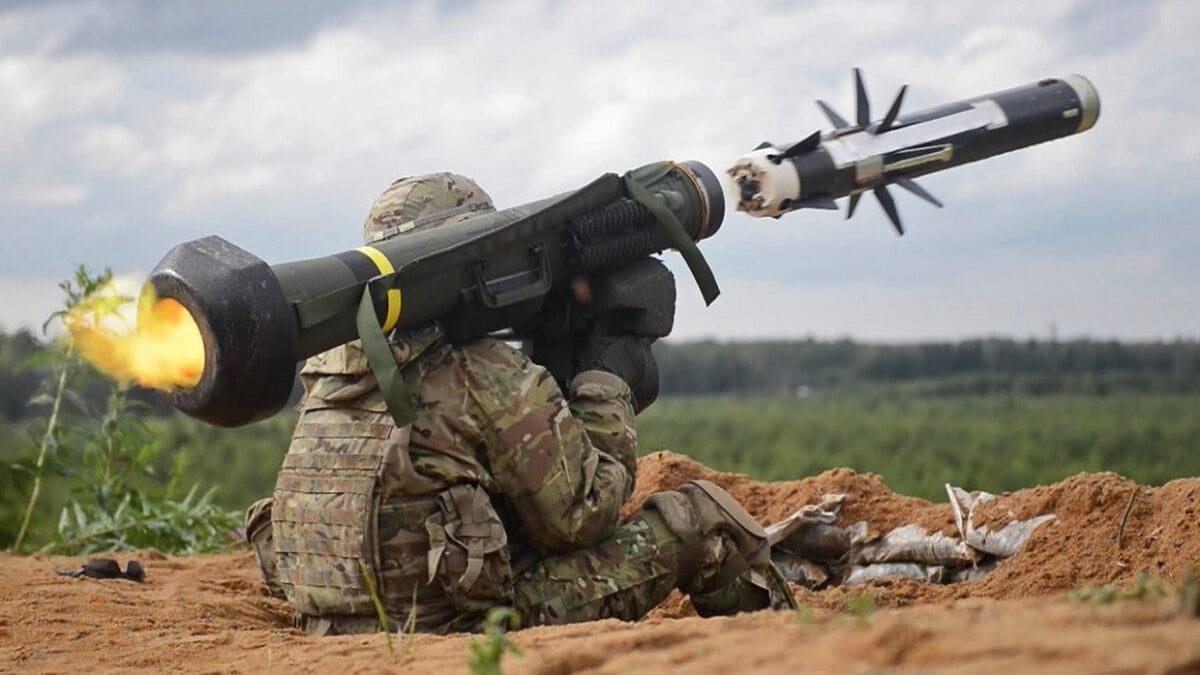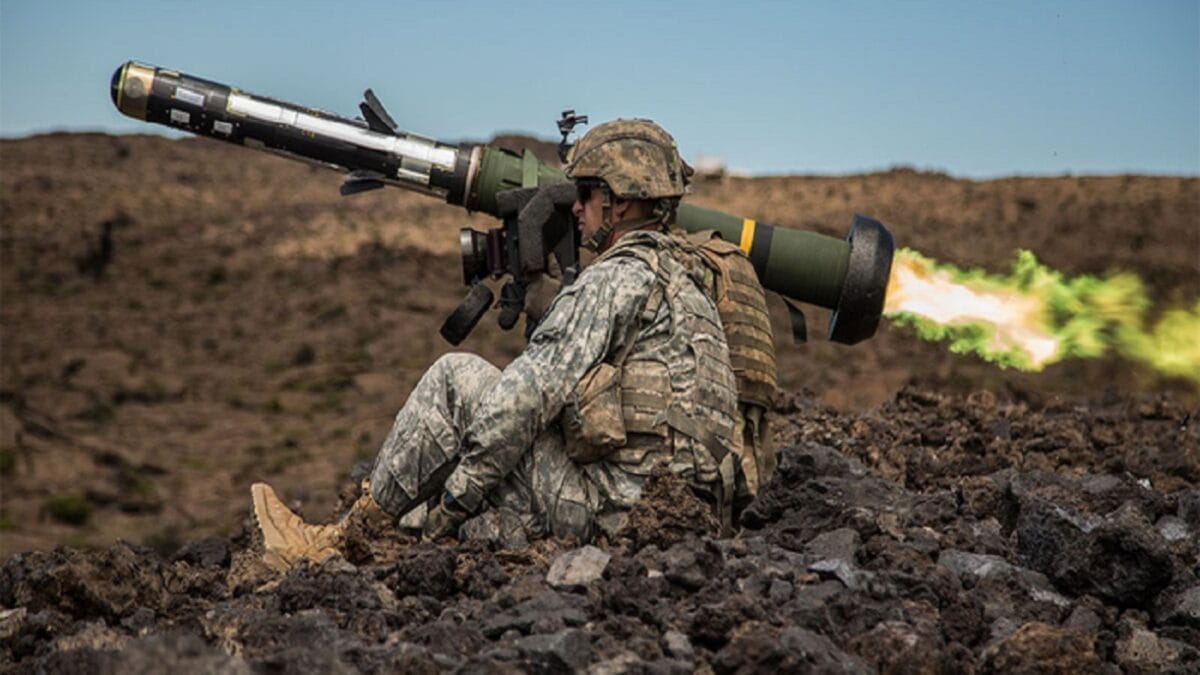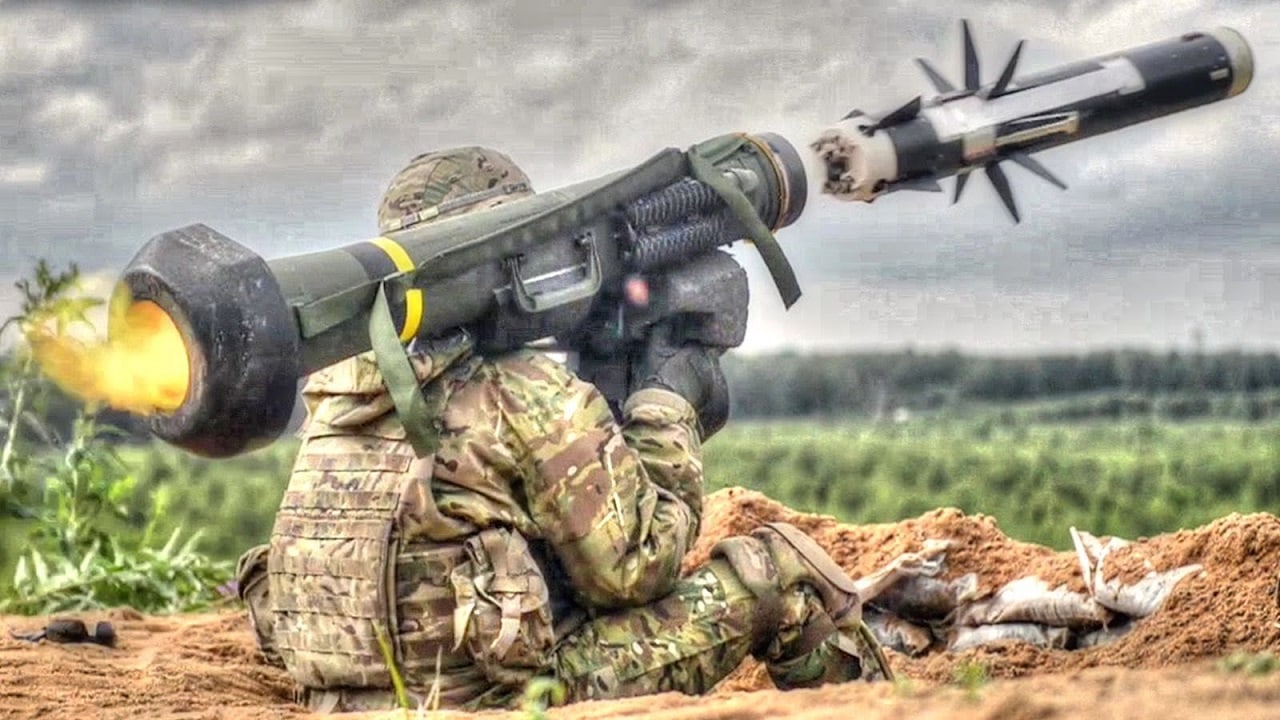Javelin Missile Production Increases as Russia Struggles to Resupply – Lockheed Martin, the manufacturer of the popular Javelin anti-tank missile systems currently being used by Ukrainian forces against Russian invaders, is set to almost double the production of the weapon.
This week, Lockheed Martin confirmed that the production rate of the anti-tank missile will be increased dramatically in response to calls from the Ukrainian government for THE continued supply of the weapons from the U.S.
James Taiclet, the CEO of Lockheed Martin, told CBS News on Monday that the current rate of 2,100 missiles manufactured per year will increase to 4,000. However, the increase in production won’t immediately benefit Ukraine’s efforts to fend off Russians in the eastern Donbas region, with the production increase set to come into effect in the next “couple of years.”
The news comes as some analysts predict that the conflict between Russia and Ukraine could potentially last several more years, and as Switchblade drone manufacturer AeroVironment ramps up supply of the unmanned aerial vehicle with a new $17.9 million contract that will be completed by May 4, 2023.
During the interview, Taiclet confirmed that supply chains are in place to ensure that the increased demand for Javelin missiles can be met and that they can “start turning up the heat now” and “ramping the production immediately.”
Meanwhile, Russian manufacturers are struggling to keep up with the demand for guided missiles and military vehicles.
Russia Can’t Keep Up With Missile Demand
Ukrainian Deputy Defense Minister Hanna Malyar revealed on Monday that Russia has used up roughly half of its guided missiles, with troops increasingly relying on so-called “dumb” bombs in their military campaign in eastern Ukraine.
The British Ministry of Defence also said on Monday that Russia’s precision-guided missiles have been “heavily depleted,” with the Russian military now relying on “readily available but aging munitions that are less reliable, less accurate, and more easily intercepted.”
British defense officials believe that Russia is also struggling to replace the precision-guided missiles that it has used as a result of sanctions, which include the banning of the sale of technology and hardware made in the United States and several other major economies.
Even when Russian forces have the precision-guided missiles they need, they don’t always work. In March, U.S. officials estimated that Russian guided missiles had a failure rate as high as 60%. The estimate was confirmed by three U.S. defense officials who spoke to Reuters.

Javelin Missile. Image Credit – Creative Commons.

Image of Javelin anti-tank weapon. Image Credit: US Department of Defense.

Javelin anti-tank weapon. Image Credit: Creative Commons.
According to Deputy Secretary of the U.S. Treasury Wally Adeyemo, Russia is also struggling to replace tanks destroyed by Ukrainian fighters.
“Because of the export controls we’ve already put in place, Russia’s top two manufacturers of tanks are no longer in business,” Adeyemo said on Monday. “Russia today has far fewer tanks than they had going into this invasion, and they can’t make more because of the action that we’re taking with sanctions.”
Jack Buckby is a British author, counter-extremism researcher, and journalist based in New York. Reporting on the U.K., Europe, and the U.S., he works to analyze and understand left-wing and right-wing radicalization, and reports on Western governments’ approaches to the pressing issues of today. His books and research papers explore these themes and propose pragmatic solutions to our increasingly polarized society.

